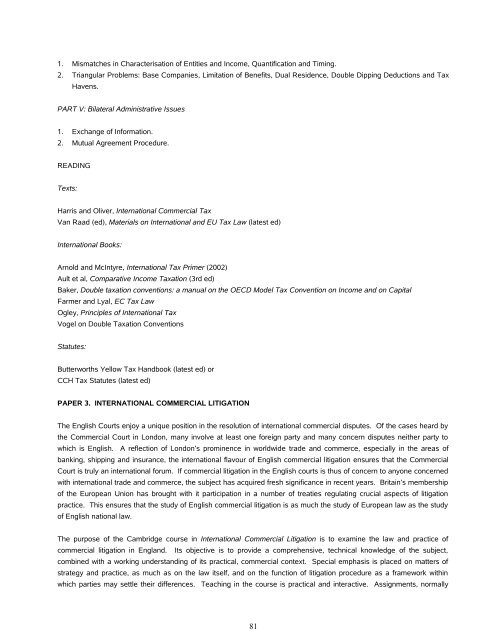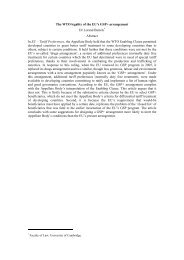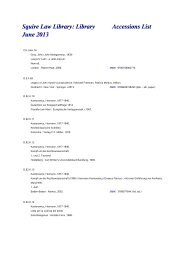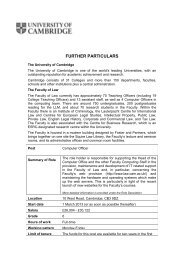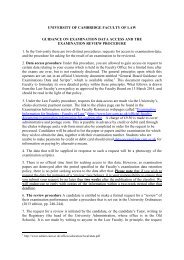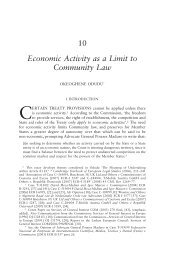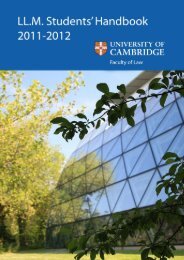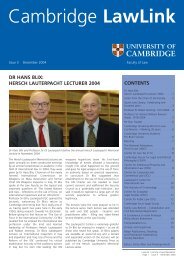Contents - Faculty of Law - University of Cambridge
Contents - Faculty of Law - University of Cambridge
Contents - Faculty of Law - University of Cambridge
Create successful ePaper yourself
Turn your PDF publications into a flip-book with our unique Google optimized e-Paper software.
1. Mismatches in Characterisation <strong>of</strong> Entities and Income, Quantification and Timing.2. Triangular Problems: Base Companies, Limitation <strong>of</strong> Benefits, Dual Residence, Double Dipping Deductions and TaxHavens.PART V: Bilateral Administrative Issues1. Exchange <strong>of</strong> Information.2. Mutual Agreement Procedure.READINGTexts:Harris and Oliver, International Commercial TaxVan Raad (ed), Materials on International and EU Tax <strong>Law</strong> (latest ed)International Books:Arnold and McIntyre, International Tax Primer (2002)Ault et al, Comparative Income Taxation (3rd ed)Baker, Double taxation conventions: a manual on the OECD Model Tax Convention on Income and on CapitalFarmer and Lyal, EC Tax <strong>Law</strong>Ogley, Principles <strong>of</strong> International TaxVogel on Double Taxation ConventionsStatutes:Butterworths Yellow Tax Handbook (latest ed) orCCH Tax Statutes (latest ed)PAPER 3. INTERNATIONAL COMMERCIAL LITIGATIONThe English Courts enjoy a unique position in the resolution <strong>of</strong> international commercial disputes. Of the cases heard bythe Commercial Court in London, many involve at least one foreign party and many concern disputes neither party towhich is English. A reflection <strong>of</strong> London’s prominence in worldwide trade and commerce, especially in the areas <strong>of</strong>banking, shipping and insurance, the international flavour <strong>of</strong> English commercial litigation ensures that the CommercialCourt is truly an international forum. If commercial litigation in the English courts is thus <strong>of</strong> concern to anyone concernedwith international trade and commerce, the subject has acquired fresh significance in recent years. Britain’s membership<strong>of</strong> the European Union has brought with it participation in a number <strong>of</strong> treaties regulating crucial aspects <strong>of</strong> litigationpractice. This ensures that the study <strong>of</strong> English commercial litigation is as much the study <strong>of</strong> European law as the study<strong>of</strong> English national law.The purpose <strong>of</strong> the <strong>Cambridge</strong> course in International Commercial Litigation is to examine the law and practice <strong>of</strong>commercial litigation in England. Its objective is to provide a comprehensive, technical knowledge <strong>of</strong> the subject,combined with a working understanding <strong>of</strong> its practical, commercial context. Special emphasis is placed on matters <strong>of</strong>strategy and practice, as much as on the law itself, and on the function <strong>of</strong> litigation procedure as a framework withinwhich parties may settle their differences. Teaching in the course is practical and interactive. Assignments, normally81


